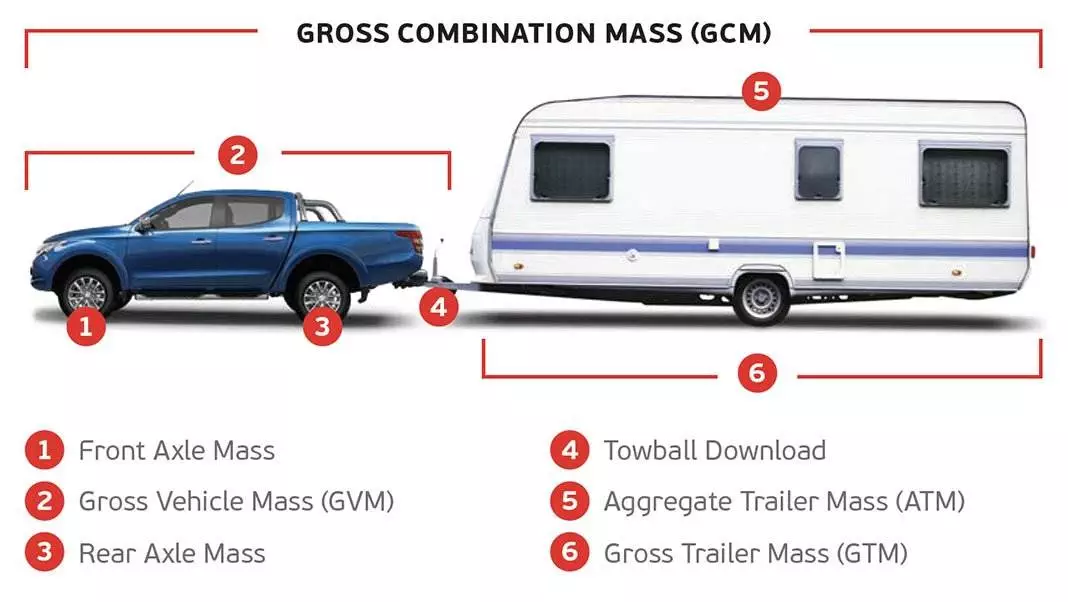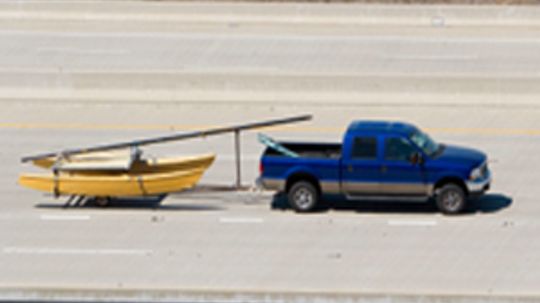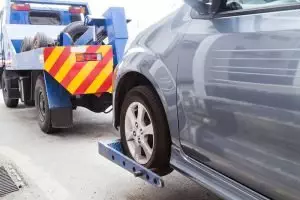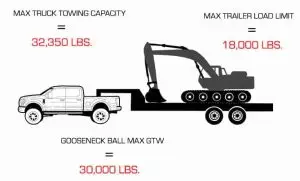When it comes to towing, it is crucial to understand the importance of safety and how it correlates with the capacity of the vehicle. Tow capacity refers to the maximum weight a vehicle can safely tow, and adhering to this limit ensures optimal performance and mitigates potential risks. In this article, we will explore the significance of towing within the prescribed capacity, discussing the potential consequences of exceeding it and providing valuable insights on how to ensure a safe and successful towing experience.
Defining Towing Capacity
Understanding the concept
Towing capacity refers to the maximum weight that a vehicle can safely tow behind it. It is an essential specification to consider when planning to tow a trailer, boat, or any other heavy load. Towing capacity is typically measured in pounds or kilograms, and it determines the maximum amount of weight that a vehicle’s engine, transmission, brakes, and suspension can handle.
Factors that affect towing capacity
Several factors influence a vehicle’s towing capacity. Firstly, the design and construction of the vehicle play a crucial role. Vehicles specifically designed for towing, such as pickup trucks and SUVs, tend to have higher towing capacities. Additionally, the engine power and torque, transmission system, axle ratio, suspension type, and braking system also contribute to the overall towing capacity of a vehicle. It is vital to understand these factors to ensure safe and efficient towing.
Importance of Towing Capacity
Ensuring safety on the road
One of the primary reasons why towing capacity is crucial is to ensure the safety of both the driver and other road users. Exceeding the maximum towing capacity can put enormous strain on the vehicle, making it difficult to control and potentially leading to accidents. By adhering to the recommended towing capacity, you can maintain stability, maneuverability, and ensure your vehicle is equipped to handle the additional weight.
Preventing damage to the towing vehicle
Towing at or beyond maximum capacity can significantly damage your vehicle. The engine, transmission, brakes, and suspension systems are not designed to handle excessive weight, and pushing them to their limits can lead to premature wear and potentially catastrophic failures. By respecting the towing capacity, you can protect your vehicle from unnecessary damage and prolong its lifespan.
Avoiding legal issues
Towing vehicles that exceed their maximum towing capacity can also lead to legal complications. Many jurisdictions have specific laws and regulations regarding towing capacity, and violating these can result in fines, penalties, or even the impoundment of your vehicle. It is essential to familiarize yourself with the local towing laws and ensure that you adhere to them to avoid any legal issues.

This image is property of fifthwheelst.com.
The Risks of Towing at Maximum Capacity
Understanding the dangers
Towing at the maximum capacity of your vehicle entails several risks that should not be underestimated. The added weight affects various aspects of the towing vehicle, including its stability, braking performance, acceleration, and overall handling. It is essential to understand these risks and take the necessary precautions to mitigate them.
Increased stopping distance
Towing at maximum capacity increases the overall weight of the vehicle, resulting in a longer stopping distance. Braking distances may be extended, especially when traveling at high speeds or in adverse weather conditions. It is crucial to maintain a safe distance from other vehicles, anticipate stops ahead of time, and allow for the increased stopping distance to ensure adequate safety on the road.
Difficulty in maneuvering
Towing a heavy load can make it challenging to maneuver the vehicle, especially in tight spaces or when backing up. The added weight can affect the turning radius, making it necessary to take wider turns and plan your routes accordingly. It is imperative to practice maneuvering techniques in safe areas before embarking on a towing journey, especially if you are inexperienced in towing heavy loads.
Excessive strain on the vehicle
Towing at maximum capacity places excessive strain on the towing vehicle’s engine, transmission, and drivetrain. This strain can lead to accelerated wear and potential failures of vital components. Over time, this can result in costly repairs or even the complete breakdown of the vehicle. It is crucial to respect the recommended towing capacity to avoid unnecessary strain on the vehicle’s mechanical systems.
Reduced stability
Towing a load at or beyond the maximum capacity of your vehicle can significantly affect its stability. The added weight can cause the vehicle to sway or become unsteady, especially when driving in windy conditions or at high speeds. This reduced stability can make the vehicle prone to fishtailing, increasing the risk of accidents. Utilizing proper weight distribution techniques and towing equipment can mitigate the effects of reduced stability.
Consequences of Exceeding Towing Capacity
Mechanical failures
Exceeding the towing capacity of a vehicle can lead to various mechanical failures. The increased stress on the engine, transmission, and drivetrain can cause these components to fail prematurely. This can result in costly repairs and potentially leave you stranded on the side of the road. By respecting the towing capacity guidelines, you can avoid these mechanical failures and enjoy worry-free towing experiences.
Damage to the transmission
Towing loads that exceed the vehicle’s towing capacity can put immense strain on the transmission system. This excess strain can lead to overheating, fluid breakdown, and wear of internal components. Transmission repairs or replacements are not only expensive but also time-consuming. Adhering to the recommended towing capacity will help protect your transmission from unnecessary damage.
Wear and tear on brakes and suspension
Towing at maximum capacity places additional stress on the braking system, which is already responsible for stopping the vehicle’s weight. The increased weight can cause the brakes to overheat and wear out more quickly, compromising their effectiveness. Similarly, the suspension components, including shocks, springs, and bushings, may experience accelerated wear and reduced performance. Regular maintenance and adherence to towing capacity guidelines can help minimize wear and tear on these vital components.
Overheating of the engine
Towing heavy loads beyond a vehicle’s towing capacity can result in excessive strain on the engine, leading to overheating. The engine has to work harder to compensate for the added weight, which can cause it to overheat and potentially suffer severe damage. Engine overheating can lead to catastrophic failures, such as blown head gaskets or cracked cylinder heads. Respecting the towing capacity will help prevent these costly and potentially dangerous engine issues.

This image is property of www.weigh-safe.com.
Choosing the Correct Tow Vehicle
Matching the trailer’s weight and size
When selecting a tow vehicle, it is important to ensure that its towing capacity matches the weight and size of the trailer or load you intend to tow. The tow vehicle should comfortably handle the total weight, including the weight of the trailer itself and any cargo or passengers it will carry. Choosing a tow vehicle capable of safely towing the intended load is essential for optimal towing performance and safety.
Considering the vehicle’s towing capabilities
Different vehicles have different towing capabilities based on their design and engineering. Some vehicles, such as pickup trucks and SUVs, are specifically designed for towing and typically have higher towing capacities. It is crucial to consider a vehicle’s towing capabilities before attempting to tow with it. Review the manufacturer’s specifications and consult the vehicle’s user manual to determine its towing capacity.
Evaluating the payload capacity
In addition to the towing capacity, it is also essential to consider the vehicle’s payload capacity. The payload capacity refers to the maximum weight the vehicle can carry within its interior or cargo area. This includes both the weight of occupants and any additional cargo that will be inside the vehicle. Ensuring that the payload capacity is not exceeded is just as crucial as respecting the towing capacity to prevent excessive strain on the vehicle’s suspension and chassis.
Understanding the Gross Vehicle Weight Rating (GVWR)
The Gross Vehicle Weight Rating (GVWR) is the maximum weight that a fully-loaded vehicle can safely handle, including the vehicle’s weight itself, passengers, cargo, and tongue weight (the downward force applied by the trailer on the hitch). It is important to understand the GVWR of the tow vehicle to determine its overall capacity and ensure that it is not exceeded. Exceeding the GVWR can lead to diminished vehicle performance, compromised safety, and potential damage to the vehicle.
Ensuring Safety While Towing
Using the right towing equipment
Using appropriate towing equipment is crucial for maintaining safety while towing. This includes using a compatible and properly installed trailer hitch, safety chains, and trailer brake controllers, if necessary. It is important to choose the right equipment for your specific towing needs and ensure that it is professionally installed and regularly inspected for any signs of wear or damage.
Properly distributing the weight
Proper weight distribution is vital for safe towing. The weight of the load should be evenly distributed over the trailer axles, and a significant portion of the load should be placed towards the front, over the trailer’s tongue. This helps optimize the stability and balance of the trailer and towing vehicle. Using weight distribution hitches or sway control devices can further enhance weight distribution and improve towing performance.
Safely securing the load
Ensuring that the load is safely and securely fastened to the trailer is essential to prevent shifting or falling while in motion. Use appropriate tie-down straps, cargo nets, or other securing devices to secure the load on the trailer. Regularly check the load during rest stops to ensure that it remains secure throughout the journey.
Performing regular maintenance checks
Regular maintenance checks are crucial for safe towing. Before each towing trip, inspect the vehicle’s tires, brakes, suspension, and towing equipment to ensure that everything is in proper working order. Check for any signs of wear, damage, or leaks and address them promptly. Regular maintenance and servicing of the tow vehicle will help minimize the risk of mechanical failures while towing.
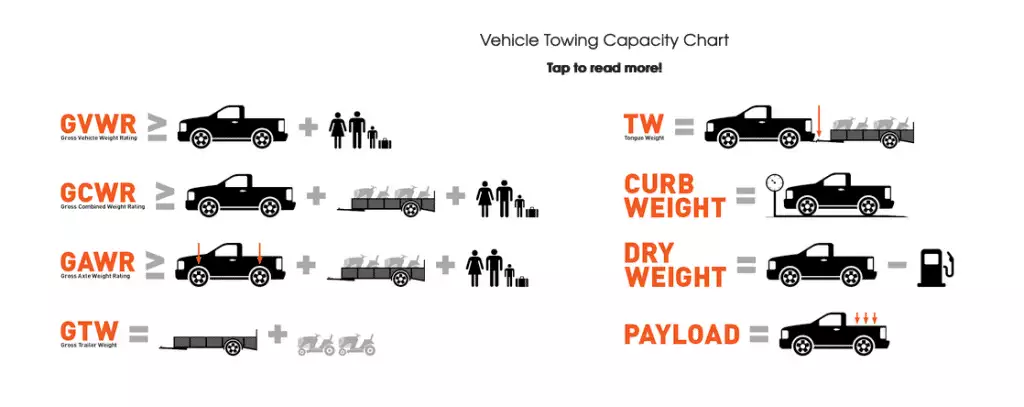
This image is property of walnutridgerv.com.
Understanding Towing Limits for Various Vehicles
Passenger cars and sedans
Most passenger cars and sedans have limited towing capacities due to their smaller size and engine power. They are generally not designed for heavy towing and are better suited for light-duty towing, such as small trailers or lightweight loads. It is crucial to consult the vehicle’s manual to determine its specific towing limitations and ensure that you stay within those limits to maintain safety and prevent mechanical damage.
SUVs and crossovers
SUVs and crossovers often have higher towing capacities compared to passenger cars and sedans. Many SUV models are specifically designed with towing capabilities in mind, making them suitable for towing medium-sized trailers or boats. However, it is still essential to respect the vehicle’s towing capacity and ensure that the load being towed falls within that range.
Pickup trucks
Pickup trucks are renowned for their towing capabilities, and many models come equipped with robust engines, heavy-duty suspension systems, and dedicated tow packages. Pickup trucks are versatile and can tow a wide range of loads, from small utility trailers to large recreational vehicles (RVs) and heavy construction equipment. However, even within the pickup truck category, different models have varying towing capacities. It is crucial to select a pickup truck that can handle the specific towing requirements of your load.
RVs and motorhomes
RVs and motorhomes require substantial towing capacities due to their large size and weight. These recreational vehicles often include amenities such as kitchens, bathrooms, and sleeping areas, which significantly increase their weight. When towing an RV or motorhome, it is crucial to select a tow vehicle capable of handling this additional weight and to stay within the recommended towing capacity to ensure safe and efficient travels.
Legal Considerations for Towing
Researching local towing laws
Before towing, it is essential to research and understand the local towing laws and regulations that apply to your specific area. Different jurisdictions may have restrictions on towing capacity, speed limits while towing, and specific requirements for towing equipment. It is crucial to familiarize yourself with these laws to ensure compliance and avoid any legal issues or penalties.
Obtaining the necessary permits or licenses
Depending on your location and the type of load you intend to tow, you may need to obtain specific permits or licenses. This is particularly relevant for towing oversized loads or commercial trailers. Check with the appropriate authorities to determine if any additional permits or licenses are required and ensure that you have them before embarking on your towing journey.
Knowing weight restrictions on certain roads
Some roads or bridges may have weight restrictions due to their structural limitations. It is important to be aware of these weight restrictions and plan your towing route accordingly. Exceeding the weight limits specified for certain roads can result in damage to the infrastructure, legal consequences, or even accidents. Adhering to weight restrictions is essential for safe and legal towing operations.
This image is property of media.hswstatic.com.
The Importance of Proper Trailer Weight Distribution
Understanding tongue weight
Tongue weight refers to the downward force applied by the trailer on the hitch of the tow vehicle. Proper tongue weight is crucial for maintaining stability and control while towing. It is generally recommended to have tongue weight between 10% and 15% of the total trailer weight. This ensures that there is sufficient downward force on the hitch to prevent trailer sway while providing optimal weight distribution between the towing vehicle and the trailer.
Utilizing weight distribution hitches
Weight distribution hitches are essential tools for distributing and balancing the weight between the tow vehicle and the trailer. They help mitigate the effects of excessive tongue weight by redistributing it more evenly across all axles. Weight distribution hitches improve stability, reduce sway, and enhance overall towing performance and safety. Utilizing a weight distribution hitch appropriate for your load can prevent excessive strain on the tow vehicle’s rear suspension and ensure a smooth and controlled towing experience.
Preventing trailer sway
Trailer sway, also known as fishtailing, can occur when the trailer moves laterally or oscillates uncontrollably behind the tow vehicle. It can be caused by various factors, including improper weight distribution, crosswinds, inadequate trailer suspension, or excessive speed. To prevent trailer sway, it is important to ensure proper weight distribution, maintain a safe and steady speed, utilize anti-sway devices if necessary, and drive cautiously, especially in adverse weather conditions.
Conclusion
Prioritizing safety and adhering to towing capacity guidelines are of utmost importance when towing any load behind a vehicle. Understanding the concept of towing capacity and the factors that affect it allows for informed decision-making when selecting the appropriate tow vehicle and ensuring proper load distribution. Avoiding the risks of towing at maximum capacity, such as reduced stability and potential mechanical failures, helps to prevent accidents, damage to the vehicle, and legal complications. By knowing the towing limits for various types of vehicles and understanding the legal considerations, you can make responsible choices during the towing process. Finally, paying attention to proper trailer weight distribution, using the correct towing equipment, and performing regular maintenance checks are essential steps in ensuring safety and a smooth towing experience. By following these guidelines and prioritizing safety above all else, you can enjoy worry-free towing while protecting yourself, your vehicle, and others on the road.

